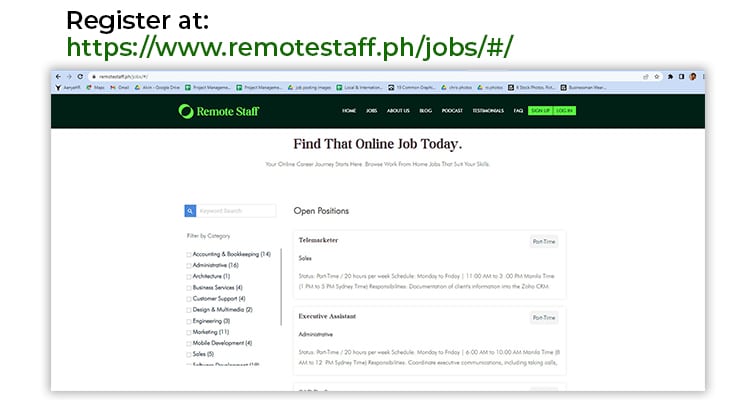I think I’m speaking for everyone here when I say that having a job today is a blessing. Unfortunately, not all of us can be lucky to have one right now. Many Filipinos still struggle to find a decent job, despite the economy slowly getting back on its feet again. And to make matters worse, there’s also been several cases of text scams offering jobs lately.
What are text spams, you may ask? Text spams are messages sent to you that you didn’t ask for nor want. In this case, these spam messages contain job offers that sound too good to be true. These job offers often say they’re offering full-time online jobs, high salaries, and give vague job descriptions.
Not just that, these messages often contain viruses that will steal your data or damage your PC or smartphone. To help you avoid experiencing this, here’s everything you need to know about these text scams offering jobs. This includes how to stop spam texts on your phone number, where to report text scammers, and safer alternatives to getting a job.

When Did These Text Spams Begin?
So, when did these text scams offering jobs first appear? The public first became aware of these text scams offering jobs when known volleyball player Gretchen Ho tweeted about it a few weeks ago. There, she posted a picture of her inbox filled with suspicious messages, many of which were job offers. Soon, others began to share their stories as well.
It turns out that this wasn’t the first time these spam texts offering jobs appeared in people’s inboxes. There were already reports of scam texts as early as November 2021. By December 2021, the National Privacy Commission (NPC) requested several telecommunications companies to submit documents to help in their investigation.

What Did These Messages Say and What Happens if You Click on Them?
As I previously mentioned, many of these messages promise a ridiculously high daily wage of 8,000 Pesos to their receivers. But thinking about it for a second reveals a major red flag: no company will offer nor is willing to offer such a high daily salary.
Besides job offers, these texts also offered social amelioration to their receivers. While others were political ads either supporting or slandering a candidate. If you click on the links in these messages, your device gets infected by a virus that steals your personal data or forces charges on you.
Understandably, these spam messages caused alarm to people regarding their data privacy. Questions were raised regarding how the NTC and telecom companies handled people’s data due to these incidents. Some even suspected that either the NTC or telecom companies were selling their data.
To quell the public’s fears, the NTC launched an investigation back in December 2021 to discover the source of these messages. They concluded that these messages couldn’t have come from the contact tracing forms/apps, though the origin remains unknown. However, some victims noticed that some telecom services experience spam texts more than others.

What if I Receive These Scam Messages?
First off, never EVER open these kinds of messages, or any links they have, no matter how appealing they may look to you. Responding tells scammers your number is active and has taken the bait. If the message mentioned a company name, look up the company’s hiring policies to see if the offer is legit.
Next, take a screenshot of the unopened message and report it to your mobile network provider. Once that’s done, immediately delete the message. This is so you don’t run the risk of accidentally opening it in the future. Unfortunately, if you’re looking for how to stop spam texts on your phone number, the best you can do is to ignore them.

What Can I Do Instead if I’m Looking for a Job?
Times are tough right now, but falling for text scams offering jobs isn’t the way to solve your financial problems. If you’re looking for work opportunities, the best way to go is by working with legitimate outsourcing companies such as Remote Staff.
Here, you can rest assured you will get a job best suited to your skills. In addition, if you require any assistance with your job, we’ll be there for you too. And the best part? You don’t even have to pay us to sign up to Remote Staff.

Not All That Glitters Is Gold.
With how difficult it is to maintain or even get a job today, it’s no surprise that there are so many scams appearing lately. After all, desperate times create confusion and panic, making it easy for scammers to lure in unsuspecting victims.
I hope this article helped keep you updated with the latest tricks used by scammers to con you not just of your money but personal data too. With how digitally connected we are today, protecting our data should be one of our top priorities.

